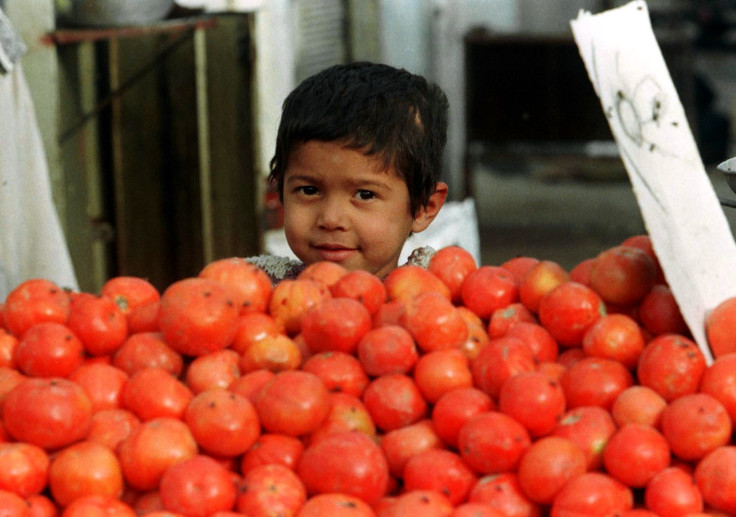Tomato-Rich Diet Cuts Prostate Cancer Risk With Toxin-Fighting Lycopene

Men who consumed at least 10 servings of tomatoes a week saw their risk for prostate cancer drop by 18 percent, reports a new study from Bristol University. Though the relationship between cancer and diet is complex, the findings emphasize the base importance of staying healthy.
Prostate cancer is the most common cancer among American men, with just shy of 200,000 diagnoses occurring in 2010, the latest year for which data is available. With the disease claiming nearly 30,000 lives each year, treatment is as urgent as it is difficult. The prostate gland is nestled deep in the body, and unlike skin or breast cancer, noticing a tumor in the prostate is an invasive process, and removing it more invasive still.
The latest research suggests lycopene, the key nutrient found in tomatoes, could help fight off harmful toxins that cause damage to cells and DNA. Analyses of 1,806 men between the ages of 50 and 69 with prostate cancer, when compared with the lifestyles of 12,005 cancer-free men, showed certain nutrients emerged as playing key roles, lycopene especially. Other food-nutrient combos included selenium and flour-based foods and calcium and dairy products.
Men who reached the optimum level of intake for these three groups staved off prostate cancer significantly more often than men who lacked them. On the one hand, the findings are hopeful, according to lead researcher Vanessa Er, from Bristol’s School of Social and Community Medicine.
"Our findings suggest that tomatoes may be important in prostate cancer prevention,” she said. But due to the intricate ways in which cancer appears in the body, “further studies need to be conducted to confirm our findings, especially through human trials.”
The greater takeaway for men is that, even if tomatoes aren’t the be-all and end-all of cancer prevention, maintaining a healthy lifestyle can only boost a man’s chances to avoid the disease. To what extent tomatoes can ward off cell damage is something Er and her colleagues would need to investigate under the microscope, in order to see lycopene’s effects firsthand. Some argue that may be the linchpin to Er’s dietary advice.
Dr. Iain Frame of Prostate Cancer UK told the BBC there wasn’t enough evidence yet to make hardline recommendations as to which foods can reduce a man’s cancer risk single-handedly. "What we do know is that men shouldn't rely too heavily on one type of food, such as tomatoes," he said. "A healthy, balanced diet with plenty of fresh fruit and vegetables, together with regular exercise is by far the best option."
To be fair, no one is recommending men go full-tomato. Even Er suggests incorporating them as balanced components of weekly goal. The research even goes so far as to offer a “dietary index” — a ranked series of foods that, when eaten in sufficient quantities, reduce a person’s risk for cancer. The point is, these indexes should be read alongside one another, not as a panacea in and of themselves. Or, in other words, everything in moderation, nothing in extreme, but still eat a lot of tomatoes.
Source: Er V, Lane J, Martin R, et al. Adherence to dietary and lifestyle recommendations and prostate cancer risk in the Prostate Testing for Cancer and Treatment (ProtecT) trial. Cancer Epidemiology, Biomarkers & Prevention. 2014.



























